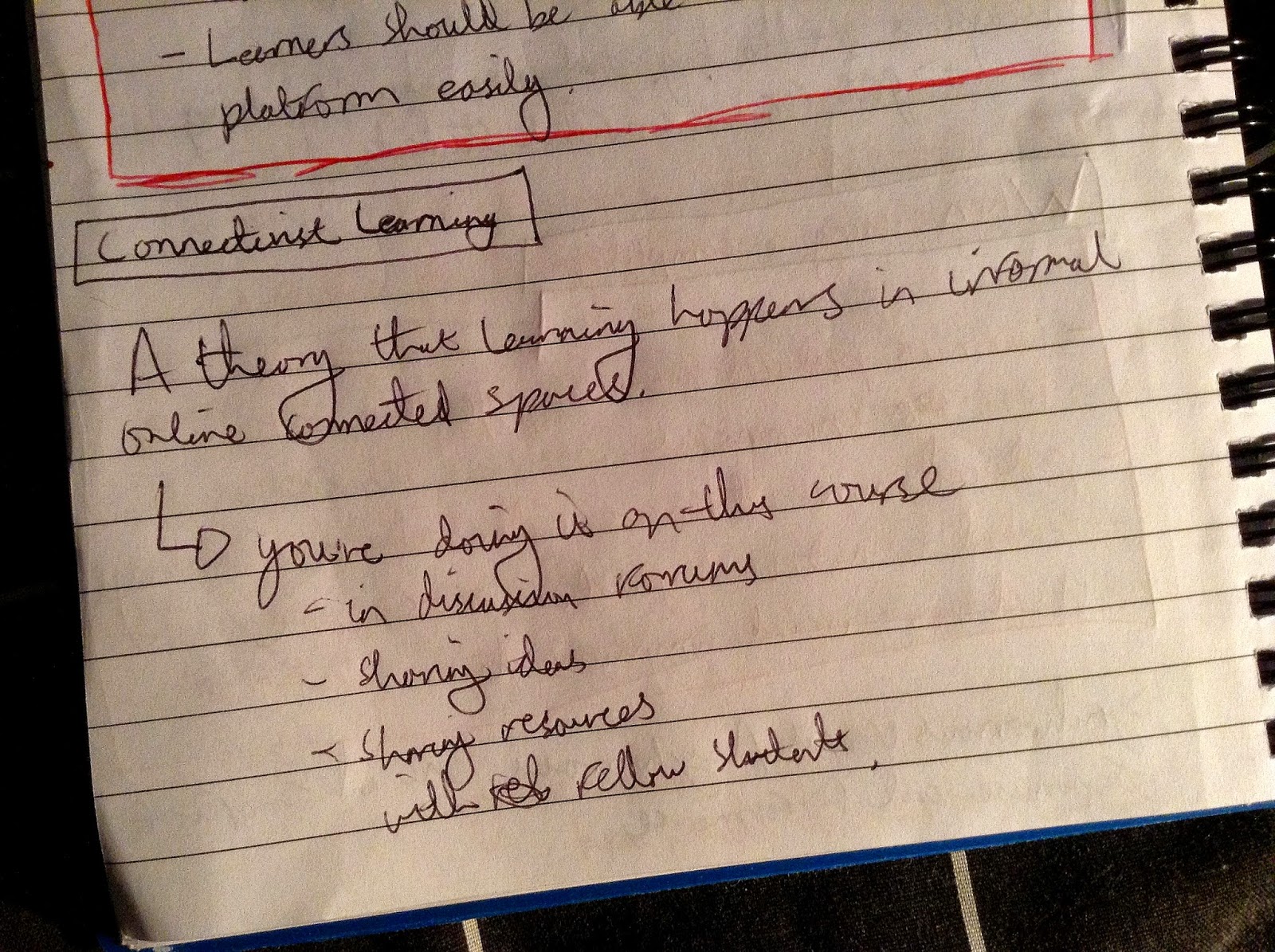Global English is a major component of the MA in English Language Teaching that the University of Southampton offers in partnership with the British Council; the same MA that this MOOC has served as a brief introduction/teaser for and was very much being crammed down my throat in this final week!
The focus of week 4 of the Understanding Language MOOC was on english as a lingua franca - a language that is utilised for communication between two or more individuals who do not share a native language - and a consideration of the emergence of the controversial new Global English.
As with weeks 2&3, I did not gain much from this fourth and final week of the MOOC. Ultimately, while it has provided some new insights, I have largely found the Understanding Language MOOC to be a huge disappointment.
 |
| Week 4 notes, there were not many. |
The week dealt with the historical spread of the english language across the globe while considering whether this was necessarily a good thing and then used this foundation to consider the global presence of the english language today.
In particular, it's role as a lingua franca a.k.a. a go-between language in international fields, such as academic, the UN, etc., was discussed; as was the emergence of english language variants which exist and vary precisely because english has been absorbed by so many different cultures and has been adapted accordingly.
This area of teaching and research that is focused on english language variants has become known as Global English and it is quite controversial. Ultimately, Global English is a major component of the MA in English Language Teaching that the University of Southampton offers in partnership with the British Council; the same MA that this MOOC has served as a brief introduction/teaser for and was very much being crammed down my throat in this final week!
One of the incentives for universities to create MOOCs is so that they can advertise their institution's expertise and course catalogue in the hope that you might be persuaded to sign up for something - I have no problem with MOOCs doing this. However, if the MOOC offers you next to nothing while it is trying to win you over - as I have found to be the case with the Understanding Language MOOC - I am going to be very annoyed!
 |
| Kill the tuition fee and no problem. |
One of the incentives for universities to create MOOCs is so that they can advertise their institution's expertise and course catalogue in the hope that you might be persuaded to sign up for something - I have no problem with MOOCs doing this. However, if the MOOC offers you next to nothing while it is trying to win you over - as I have found to be the case with the Understanding Language MOOC - I am going to be very annoyed!
Yeah, I was not very enthralled by this final week or the way in which it did not really tie together the weeks that came before it!
Overall, the Understanding Language MOOC has just felt too much like the University of Southampton was trying to sell me the MA in English Language Teaching, opposed to actually teaching me something new.
I was very surprised because the University of Southampton also produced the Web Science MOOC I am quite big on and, while that was also advertising a new degree they have started at their institution, the MOOC itself offers you an awful lot on its own!
However, not long after the Understanding Language MOOC concluded, FutureLearn announced a new batch of courses and the one created by the University of Bristol caught my eye: Cultural Studies and Modern Language: An Introduction.
Overall, the Understanding Language MOOC has just felt too much like the University of Southampton was trying to sell me the MA in English Language Teaching, opposed to actually teaching me something new.
I was very surprised because the University of Southampton also produced the Web Science MOOC I am quite big on and, while that was also advertising a new degree they have started at their institution, the MOOC itself offers you an awful lot on its own!
However, not long after the Understanding Language MOOC concluded, FutureLearn announced a new batch of courses and the one created by the University of Bristol caught my eye: Cultural Studies and Modern Language: An Introduction.
I have already signed up, it sounds very promising...
"By the end of the course, you will have heard twelve examples about how language and artifacts contribute to culturation and development; collectively these examples will introduce you to a methodology on how to understand other cultures."
While the Understanding Language MOOC has been a bit of a let down, it has at least started to introduce me to the conceptual foundations of language learning, so with any luck the Cultural Studies and Modern Languages MOOC will build on those conceptual foundations and fully set me on my way to start learning another language somewhere down the line.
You can read my other posts on the Understanding Language MOOC below:
- Understanding Language: Learning and Teaching MOOC - Commencement
- Do you take my meaning? Understanding Language - Week 1 Reflection
- Classrooms and Technology - Understanding Language - Weeks 2&3 reflection

















